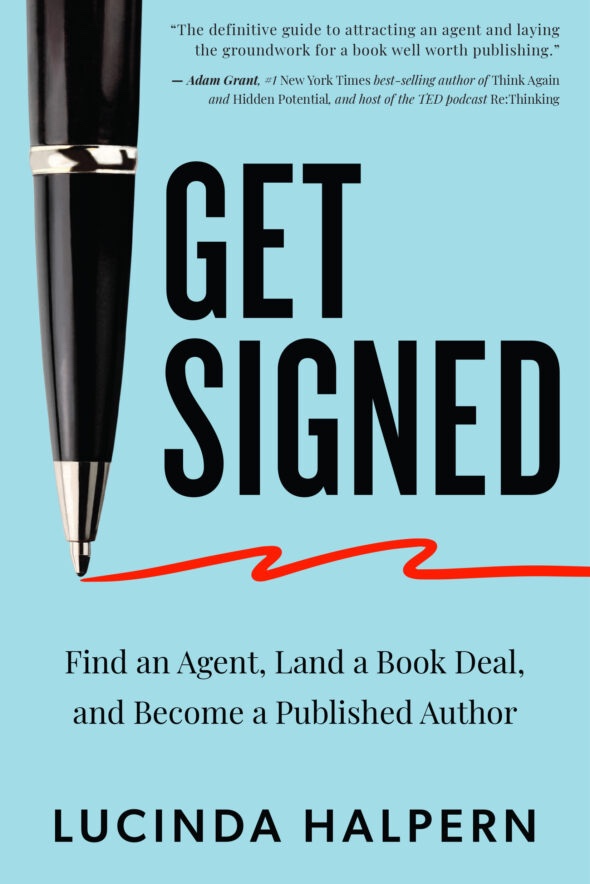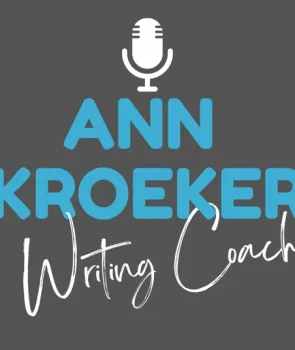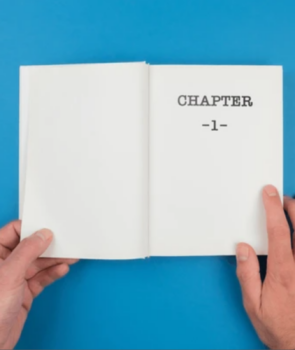Search
April 2023: Lessons in Writing a Book From Lucinda
Lucinda sends her greetings from London!
This week, she ventured to the London Book Fair, where she had the chance to meet a number of foreign publishers and with our co-agents in the UK at Greene & Heaton. Lucinda exclaimed that she is still buzzing from the event, having learned so much about the international market and what foreign publishers are looking for right now, as well as having pitched our agency’s titles with all her heart!
Though her trip has been quite the shift from the work she had been doing just days prior to her travels. Here’s what are a few learnings Lucinda is most excited to share with you in this week’s blog post:
From Lucinda…
I spent last week largely housebound writing the manuscript for my book, Get Signed, all day and night. For those who don’t know, this book is based on our course by the same name, but features a ton of new information and exercises for writers. I’ve finally finished draft one after eight months of work and delivered it to my editor at Hay House. Get Signed will be published in February of 2024.
During the writing process, I had been recommended a book called Write Useful Books and it has served as a tremendously useful guide for my endeavors. For those in the process of finishing a manuscript, it’s a must-read.
Additionally, I have also learned not to ask what a publisher can do for me; they have provided me with the gift of a contract and their distribution power. Instead, I ask myself repeatedly what I can do for them, and most importantly, for writers like you. I looked at this sticky note every day while I turned to writing:
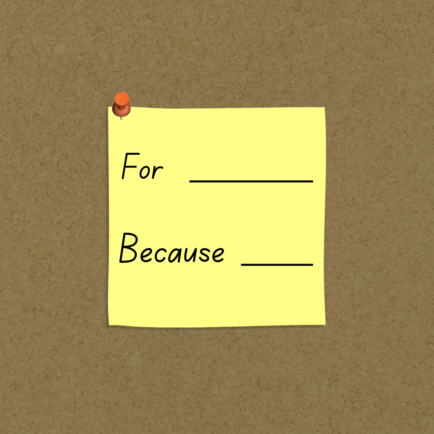
The “For” was always “Writers,” but sometimes the “Because” would change depending on the content and questions I wanted to address for you in each chapter.
Through my experience sitting in an author’s chair, I have new compassion for the anxiety and self-consciousness writers experience. Sharing your work with world, even with those you trust and respect, is like lying on a doctor’s examination table, waiting to hear a diagnosis. Now, I confirm receipt and read my authors’ pages more quickly than I had before, understanding how anxiously they are awaiting my feedback.
When you build a book, you are creating a village. Last summer, three gifted and passionate interns helped me cull my presentations, podcast quotes, and more so that I could write them into the book. We shared a messy Google doc, going back and forth, which provided the foundation of the draft. Later, my colleagues Julia, Grace, and Connor brought their fantastic editorial commentary and design skills to the project. Like the best of editors, they questioned absolutely everything to make sure I had addressed concepts clearly for readers.
One crucial element to getting my book in on deadline—and feeling momentum and accountability along the way—was hiring a book collaborator to interview me, go through the material, handle outside research, and fill in the blanks. I had always thought I was a strong writer, but book-writing has no room for ego! While running a business and having a family, there was only so much of me that I had time to give. Liz Morrow was the best partner I could have imagined. We rewrote and rewrote and rewrote each other in multiple passes to create the best version this book could be, and we have many more revisions ahead once we receive edits from the publisher.
I’ve had to kill so many darlings and it’s been painful. Authors, I feel you on this. But I must admit that my best writing happened in the editing. If you can afford to bring in a collaborator, no matter what genre you’re writing, your work will benefit greatly and you’ll feel so much less isolated.
As many of writers have expressed to me before, staying productive in your writing alongside work, family, and other commitments is a struggle. I had to change my lifestyle in ways I never anticipated, such as waking up at 5am like so many of my most productive authors, who also run businesses, do just to have the quiet time to write. Normally, my early—but not that early!—mornings were reserved for exercise. But here’s the thing: if early mornings are a creative period for you, you may (as I did) wish to reconsider your usual schedule. I wrote in the mornings, and moved exercise to mid-afternoon when I was hitting a wall. This gave me ample energy to write again in the evenings, when I would normally not have it in me. Tactics like handling my inbox in chunks and batching meetings helped a great deal. Healthy eating and no drinking. Social plans would have to wait. Even my husband and young children became accustomed to my writing schedule, appreciating that writing my book meant a lot for me. If this is to be the mark you leave in the world, you have to give up control in other areas of your life and allow your strongest teammates at work and at home to run point. It turns out the world doesn’t collapse without you; you’re still present and reachable when you need to be. Only by setting these boundaries in the great book writing marathon to producing will you meet your goals. Writers, I understand firsthand and have compassion for the sacrifices you’re making.
I’ll continue to share my learning and excerpts from the book on social media. Here’s an excerpt for now that discusses the importance of comparative titles, which I hope you enjoy. Feel free to grab the image and share it with the hashtag #GetSignedBook if you think it could be useful for others in your orbit.
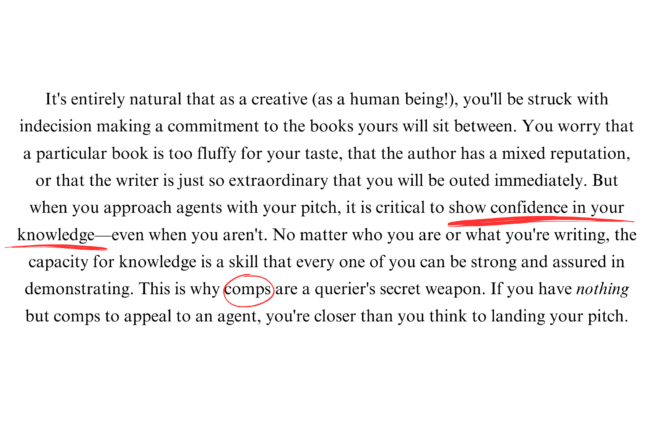
If you’re just starting out, explore our beginner resources on Get Signed



